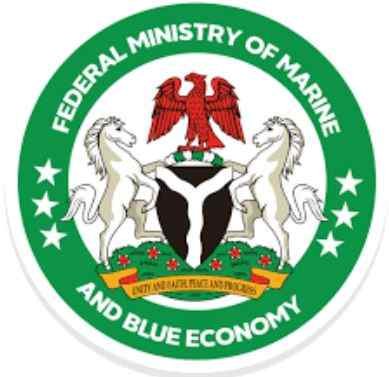The Ministry of Marine and Blue Economy in Nigeria oversees the country’s maritime activities and promotes the growth of its blue economy. This ministry protects marine resources and develops sustainable fishing practices.
It also promotes maritime infrastructure development, such as ports and harbors, and encourages investment in the blue economy sectors, including shipping, shipbuilding, and offshore oil and gas.
READ ALSO: List Of Ministers Of Work In Nigeria
List Of Ministers Of Marine And Blue Economy In Nigeria
Minister | Term | Party | Note |
|---|---|---|---|
Adegboyega Oyetola | August 2023 - Present | APC | First Holder |
Departments of the Ministry of Marine and Blue Economy, Nigeria
- Fisheries and Aquaculture
- Press and Public Relations
- Maritime Services
- Maritime Safety & Security
- Human Resources Management
- Planning Research and Statistics
- Finance and Accounts
- Procurement
- Special Duties
- General Services
- Reform Coordination & Service Improvement
- Internal Audit
- Legal Services Unit
Agencies Under The Ministry Of Marine And Blue Economy In Nigeria
Here are the agencies under the Ministry of Marine and Blue Economy in Nigeria:
- Nigerian Maritime Administration and Safety Agency (NIMASA)
- Nigerian Ports Authority (NPA)
- National Inland Waterways Authority (NIWA)
- Shippers Council
- Maritime Academy of Nigeria
- Council for Regulation of Freight Forwarding of Nigeria
READ ALSO: Complete List Of Ministers Of Transportation In Nigeria
Who Is The New Minister Of Marine And Blue Economy In Nigeria?

Gboyega Oyetola is the first holder and the new Minister of Marine and Blue Economy in Nigeria. He was appointed by President Bola Tinubu in August 2023.
This is a new ministry, created to focus on Nigeria’s marine resources, coastal management, and the blue economy, which includes industries related to oceans, seas, and inland waters.
The goal is to boost the country’s economy using its rich marine resources, which can create jobs and support economic development.
Oyetola had served as the Governor of Osun State from 2018 to 2022. During his time as governor, he improved infrastructure, healthcare, and education in the state. His administration also improved the state’s economy and reduced unemployment.
However, after his election victory, there was a legal dispute over the results, but he continued to serve as governor until 2022 when he handed over power to his successor, Ademola Adeleke.
Oyetola’s political career began long before his governorship. He served as the Chief of Staff to the former Osun State Governor, Rauf Aregbesola, between 2011 and 2018. In terms of education, Gboyega Oyetola is highly qualified.
He has a degree in Insurance from the University of Lagos, which he earned in 1978. He also holds a Master of Business Administration (MBA) from the same university, which he completed in 1990.
Before joining politics, Oyetola had a successful career in the insurance industry. He worked for several insurance companies, rising to senior positions, and eventually started his own company, Silvertrust Insurance Brokers Limited.
Oyetola is also a member of several professional bodies, including the Chartered Insurance Institute in both London and Nigeria.
His professional achievements have earned him recognition both nationally and internationally. Now, as the Minister of Marine and Blue Economy, Oyetola faces the task of managing Nigeria’s vast marine resources.
His role involves overseeing policies to protect and utilize the country’s oceans, rivers, and coastal areas for economic growth.
This includes working on shipping, fishing, oil exploration, and other industries tied to the marine economy. He will also ensure the sustainable use of these resources, making sure that economic development does not harm the environment.
In this new position, Oyetola’s experience in governance, business, and administration will be essential in helping Nigeria make the most of its blue economy.

